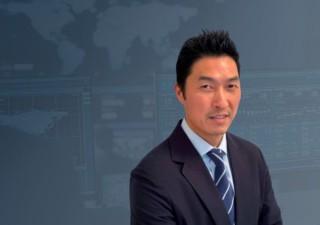WIPO Director General Outlines Second Mandate Priorities
23 September 2014

On September 22, 2014, WIPO Director General Francis Gurry pledged to continue to build on the successes achieved over the past six years in the Organization’s core programmes – global intellectual property services, policy-making, capacity building, and technical infrastructure.
In his speech at the opening of the first WIPO Assemblies since his reelection in May for a second six-year mandate – and the first Assemblies to be held in WIPO’s new conference hall – Gurry attributed WIPO’s strong financial health to steady growth in the global IP systems, namely the Patent Cooperation Treaty, the Madrid System for trademarks and the Hague System for designs. Both membership and use of these systems have grown “very significantly” over the last several years, Gurry said, citing them as “good examples of successful international cooperation.”
“WIPO’s global IP systems should be one of the essential priorities of the Organization in the coming six years,” he told delegates from WIPO’s 187 member states, and pledged to ensure that these systems remained efficient, accessible, and service-oriented. He noted that fees have remained steady, with no increases despite increased workloads.
While advances in normative programmes remain a challenge, Gurry highlighted recent successes with the adoption of two key copyright treaties – the Beijing Treaty on Audiovisual Performances (2012) and the Marrakesh Treaty to Facilitate Access to Published Works for Persons who are Blind, Visually Impaired or Otherwise Print Disabled (2013).
He stressed the need for quick ratifications of these treaties to convert their promise into reality. “I would urge all member states to convert the hard work that went into successfully concluding the treaties into accessions that bring the treaties into force, and which will, in turn, convert the potential of the treaties into realized gains for actors and visually impaired persons, as well as for the multilateral framework governing intellectual property.”
Gurry also urged member states to move forward and complete other ongoing negotiation tracks, namely a proposed design law treaty, broadcasting, traditional knowledge and cultural expressions and IP in relation to genetic resources.
Gurry further outlined WIPO’s successes over the past six years in creating new platforms for international cooperation. Such platforms, he said “are extremely effective vehicles for achieving a number of shared policy objectives” and “can, in certain contexts, be as effective in advancing international cooperation as treaties.”
These voluntary, à la carte platforms include WIPO’s global IP databases; platforms that facilitate cooperation in the delivery of services by IP offices; public-private partnerships such as WIPO Re:Search and the Accessible Books Consortium, and IT systems for modernizing IP Offices and copyright agencies.
He said these efforts are aligned with the objectives of the Development Agenda and are good examples of the mainstreaming of development throughout the Organization’s programmes.
Gurry said WIPO’s general technical assistance and capacity building programs will continue to be a central priority. “We work closely with member states in trying to achieve outcomes that address the particular economic circumstances and aspirations of the developing and least developed countries.”
Gurry thanked the staff of WIPO and the outgoing senior management team (SMT) “for their professional and dedicated service.” He said he was pleased to present to the Assemblies his proposals for a new SMT.
Gurry concluded by noting that “innovation has become central to the economy and to society’s capacity to address new challenges. We are likewise experiencing the most profound revolution in the production, distribution, and consumption of creative and cultural works for the past 600 years.”
Intellectual property, he said, is integral to both of these developments. “I hope that, in the coming six years the Organization will be able to play an important part in developing policies, platforms and cooperation that will respond to the magnitude of the challenges that are arising from the centrality of innovation and the digital revolution.”






